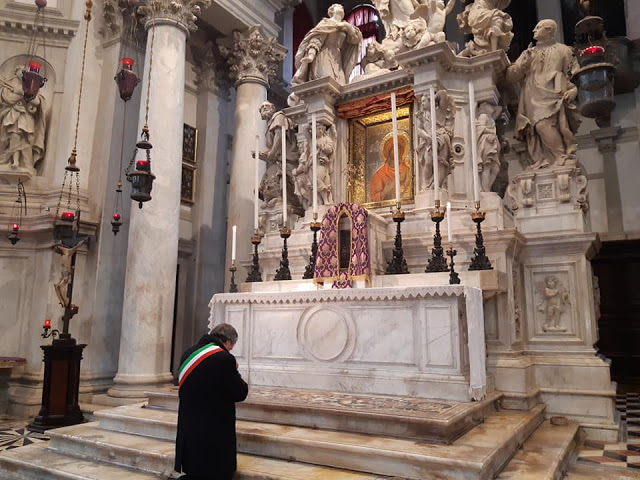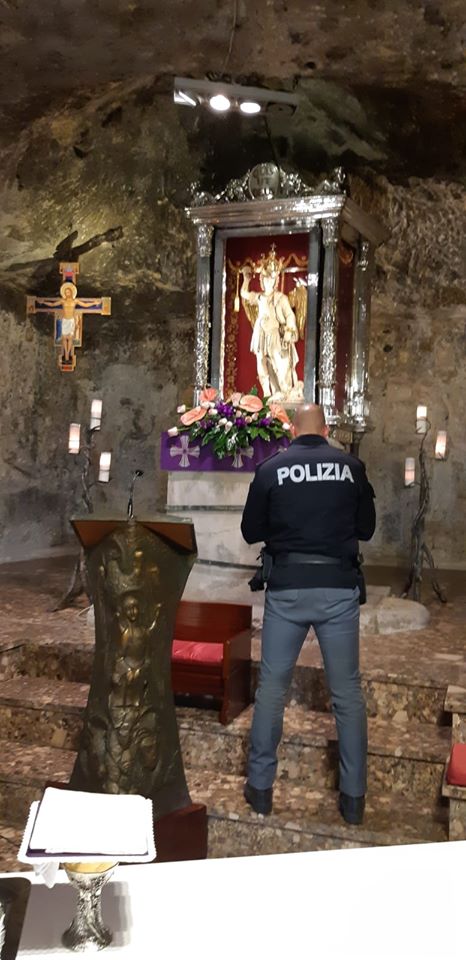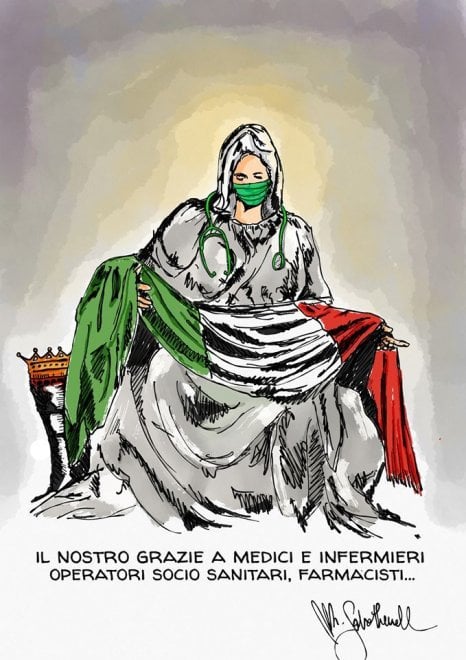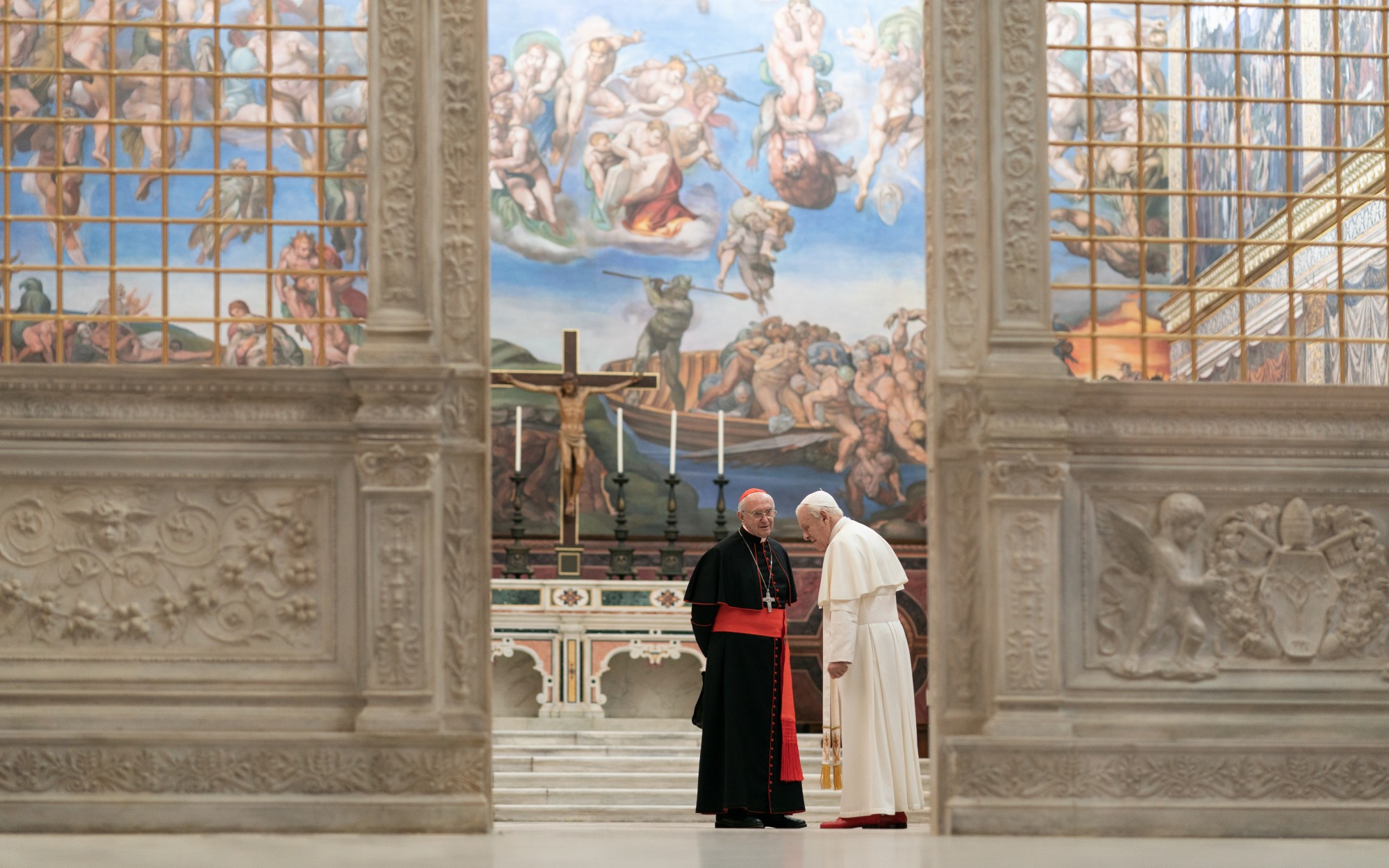Transcript
My name is Enza Ferreri. I'm a blogger, journalist and the Press Officer of the Liberty GB party.
This video is for everybody, but it's mostly for the people in the counter-jihad movement, and among them, the atheists and agnostics. We know much more – and I include myself – about Islam than we know about Christianity.
Now, I've been an atheist almost all my life. I've become an agnostic less than a year ago, when I realised that the reason why many people, many atheists, are opposed to the belief in God – the reason they'll give is that there is not enough evidence for the belief in God – could also be an argument against atheism. Because when you say there's no Creator, ... when you don't explain the origin of the universe by means of a Creator, you are automatically subscribing to the alternative view which is that everything happened by chance, that the universe came about by accident, and that has got less evidence ... than the belief in God.
Now this introduction is just to make you understand who I am, where I'm coming from, but has nothing to do with what I'm going to say next.
Let's put the belief in God aside. Okay, we all know that we have a problem with Islam. But we should understand, for instance, that the EDL [English Defence League] has failed – has got many problems – exactly because it starts from only that viewpoint. It's just a spontaneous reaction against Islam, but without a grasp of the problem and a better ground to understand it and to face it. Islam is not the problem, Islam is a symptom of a disease, and the disease is cultural Marxism.
Now the West wouldn't have any problem with Islam if the West were strong within. It's a bit like the Roman Empire. The Roman Empire, yes, was destroyed by the barbarians from outside, but more than anything was destroyed by its own weakness inside, the divisions, the political divisions within it. And the same, something similar, applies to the West and Islam, in the same way as Rome versus the barbarians.
Our superiority, the West's superiority and greater strength is such that Islam wouldn't trouble us at all if we didn't have these divisions within the West, Western civilisation, which are caused by Cultural Marxism, which is the reincarnation of Marxism in the twentieth century.
Antonio Gramsci, who founded the Italian Communist Party in 1921, formulated the theory of cultural hegemony, which says that before being able to change, to make a change politically, to have a political revolution, we need to change the culture. And that is done by changing the consciousness of the people, a total change in and control of the culture, so that new, emerging, dominant ideas would lead to the political revolution and give rise to new generations with different ideas.
That has been done by the Left successfully. After Gramsci there was the Frankfurt School later on, and since then the Left has applied this idea of cultural hegemony and has with it control of the media, and the education system, has done exactly that and has won the war so far.
Now we must do the same, we must use the same means. How? The great Oriana Fallaci, who was one of the first, one of the pioneers to open the eyes of the West to the dangers of Islam, was herself an atheist. But she called herself a Christian atheist.
This is an important distinction because we want to distinguish between Christian theology and the belief in God – to which we may or may not subscribe – [and] Christianity as civilisational foundation for the West and for our countries. And that is non-negotiable. We need Christianity, we can't do without it because this is what the West was built on.
We are ourselves the victims of decades of leftist propaganda, so it's understandable that many of us have actually embraced them, believed in them. But there are many [myths in what they say]: first of all, that all religions are the same. This is absurd. If you want to think scientifically and look at empirical evidence, where are Christian terrorists? Let's look around ourselves, there aren't any.
But there are so many Muslim terrorists, and not only that, all over the world violence is initiated mostly by Islam. No other religion really, but certainly not Christianity.
And another thing: we have to explain to ourselves why only the Christian part of the world has made such enormous progress, to which the other parts of the world don't even come close. There must be some explanation, why is it? The only thing that distinguishes the West from the rest is Christianity.
Christianity is not what some atheists – I'm not talking about all atheists of course, there are atheists like Oriana Fallaci, like me, or agnostics, who don't believe in that – but some atheists propagate the wrong ideas about Christianity, and they have led us to believe some things that Christianity is not.
Christianity is a very complex, rational doctrine developed through centuries of Patristic and Scholastic philosophy incorporating Aristotle and his logic. If all religions were the same, how is it that Aristotle could never be reconciled with Islam?
Now let's think about the Crusades as well. Most people in the counter-jihad movement, will know by now, hopefully, that there's been a huge historical distortion of what the Crusades were about – by the Left, by Cultural Marxism.
They were not, as they have been portrayed, a war of aggression, but they were actually the opposite, they were belated wars of defence against the encroachments of Islam, which was about to conquer Europe. We have to thank the Crusades if we are now not all Muslims or minorities in Islamic countries – which is a fate worse than death, you just have to look at what happens all around the world.
So in same way as the Crusades have been, the history of the crusades has been distorted and manipulated by the Left, in education and in the media – if you look at the Hollywood films that have been made about the Crusades, they are all totally distorted –, the same can happen about other parts of Christian history.
Now, I'm not going through all the history of Christianity because we haven't got enough time for this short video, but we've got to look at the things that Christianity has contributed to the West, which are important throughout Western history, including now.
Christianity is deeply ingrained in many of the things that we believe in today. Many of our institutions, values, principles and practices. And here they are, for instance:
All men are equal. This is a distinctive Christian belief, not to be found in any other religion or doctrine, especially at the time of Jesus Christ, it was a very, very revolutionary belief; and without bias of race or class.
The freedom and rights of the individual. For Christianity man has free will and he is in the image of God. This is in stark contrast to the autocratic societies of the non-Christian world, past and present. Without freedom, without this kind of freedom, there are no other freedoms, political, economic or religious.
Human rights derive from the Christian concept of natural rights.
The dignity of manual labour, that Christianity has introduced; it didn't exist in other cultures. Remember that Jesus's father was a carpenter, and most of the people he recruited were either fishermen or other labourers.
Christianity has been the inspiration of great art, music and literature.
Then, the abolition of slavery. Only Christianity has abolished slavery. It still exists in Islam, it's never been abolished by Islam, whereas Christianity abolished it twice: at the time of the Roman Empire first, when Christianity became the [future] religion of the Roman Empire; and in nineteenth century America – it was Christians who abolished slavery in nineteenth century America.
Then, Jesus banned animal sacrifices.
Then, the banning of gladiator fights, which derived from pagan Rome.
Christianity in ethics. Christian ethics is the best ethics, even today. There is nothing that has been able to replace it. Utilitarianism, which is a non-Christian – actually non-religious – ethics founded by Jeremy Bentham in the nineteenth century, is not a good system of ethics. It basically accepts the principle that the end justifies the means.
Christian ethics is still the best ethics, founded on love and charity. In fact, you can see that the people who help now and have helped the Third World – who have gone there and helped it – the vast majority of them are Christians.
Before Christianity and in other parts of the world ... there's never been an interest for the poor, the sick and the dying. Christianity introduced historically the institutionalisation of healthcare.
Then, the birth of science. Science in the modern sense of the word was born with the beginning of the modern era in Europe, after the Renaissance. ... Science is a system, a systematic application of a method of enquiry to nature, and a different outlook on the natural world.
It's been possible because Christian scientists of the fifteenth and sixteenth centuries – and philosophers of science as well – because they were Christian they believed that because the Christian God is a person like us, He has ordered the universe in a way that we can understand. For science it is essential that there is an orderly universe, that you can discover the laws of nature.
We think this is obvious now, we take it for granted, but it's not an obvious concept at all, that the universe must be ordered and not chaotic. In fact the Chinese, for instance, at the time couldn't believe in that. That's why science [didn't] develop in China for instance.
If you read a book, why do you think you can understand it? Because you know that you speak the same language as the author, or think, have a mind that is similar to that of the author. Galileo spoke of the book of nature being written by God in mathematical language and he said we – scientists – can understand it because we have a mind similar to that of God, we are built in his own image. So this was all essential for the birth of science, and Christianity was crucial in it.
No other religion, philosophy, teaching, nation or movement has changed the world for the better as Christianity has done. Are we going to throw all this away? How do we know that all these great things that Christianity has given us will survive without it?
As individuals we can be atheist or agnostic, but can we as a society be?
Is it a coincidence that Islam is representing a mortal threat to the West for the first time in centuries just when our society doesn't seem to believe in anything any more?
All the enemies of the West have always been enemies of Christianity. Is that a coincidence?
To resist the ideological onslaught of Islam, we must know who we are. This culture of nothing, of nothingness, prevailing in the West has helped Islam, and will continue to be an obstacle to our resistance to it.
Not all atheists but those of them who oppose Christianity and the Church don't realise that they are fighting against the strongest inspiration and the most effective defence of Western civilisation and its values of rationality and freedom. And they might realise that when it's too late.
 Mayor Consecrates Venice to the Immaculate Heart
Mayor Consecrates Venice to the Immaculate Heart






